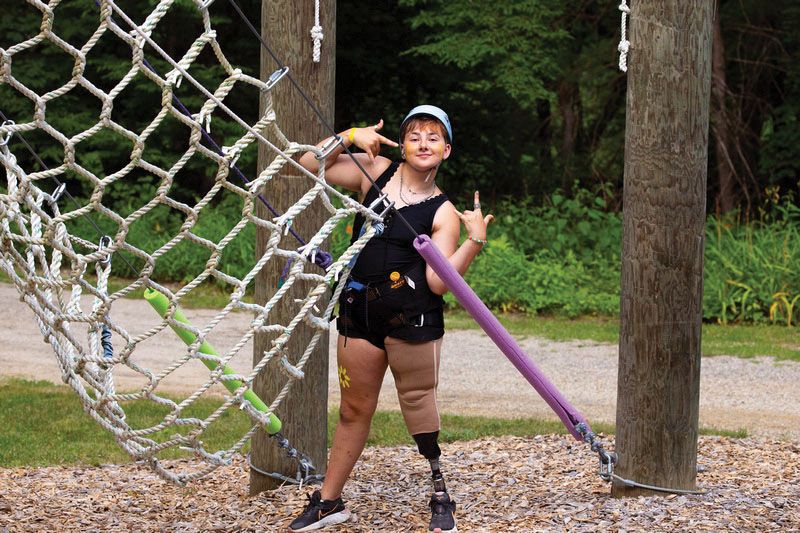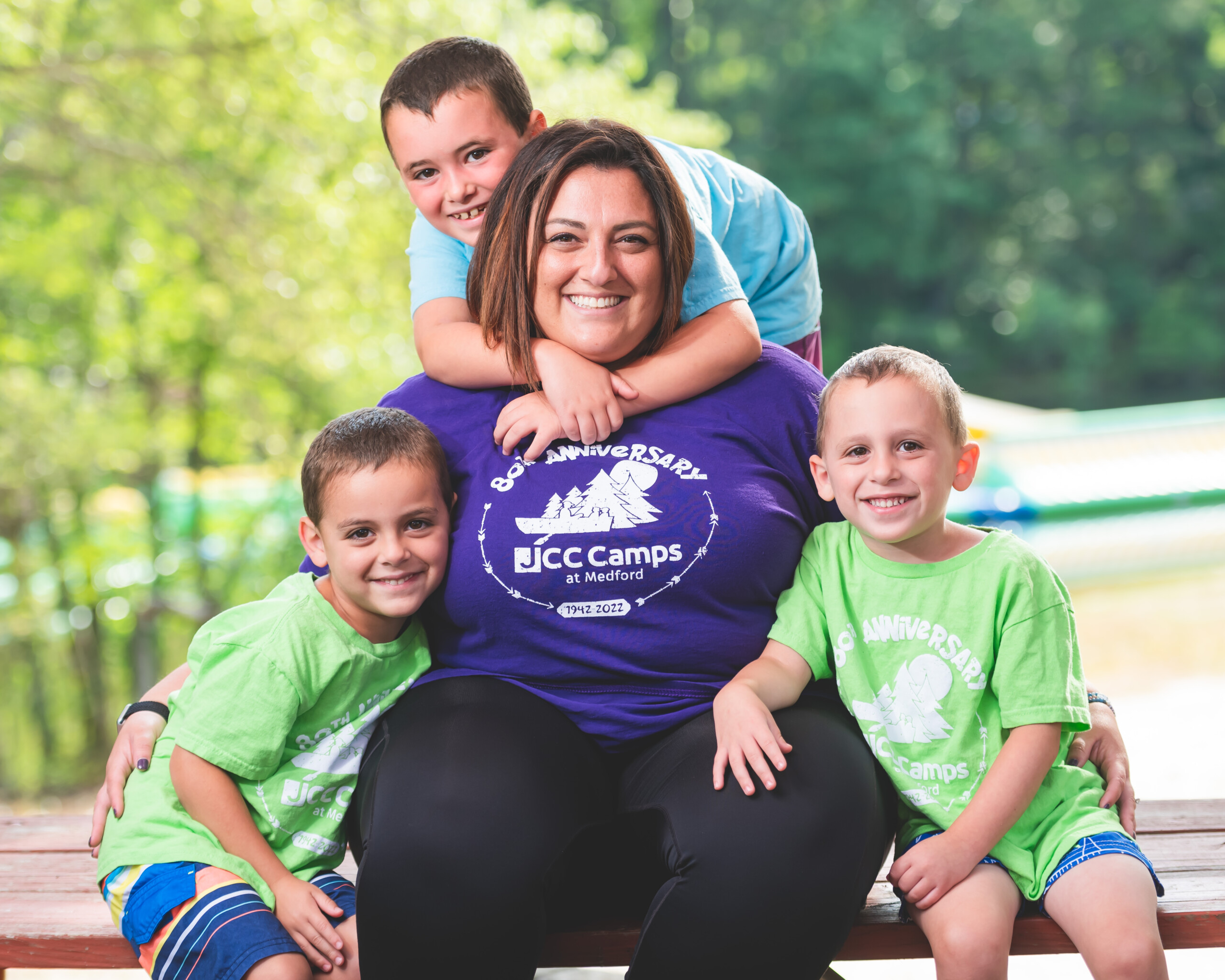Teens and college students who think they’ve outgrown summer camp and need a “real job” may be missing out on the best job of their life. Camps seek teens and young adults for jobs as counselors, activity instructors and lifeguards, even in a down economy. When teenage jobless rates soared to record highs in summer 2009, the American Camp Association (ACA) says that more than 1.2 million people still found jobs at day and overnight camps.
Skills for Life
Human resource managers value camp counselor experience. Employers know that counselor jobs build life skills, says Cheryl Magen, a former camp director and educational career consultant who is president of ACA’s Keystone Section. “Counselors practice leadership, teambuilding, supervision, mentoring, communication, cooperation, problem-solving, conflict resolution and program development,” says Magen.
The counselor experience also promotes healthy emotional and social development by fostering autonomy, according to a 2009 study by University of Connecticut researcher Sara K. Johnson. “Camp is a unique place where counselors can experience responsibility while still feeling the safety net of supportive relationships, and also still have the freedom to explore themselves and their own personalities,” says Johnson.
Don’t Apply for Your Child
Trish Warriner, director of the Western Family YMCA’s Camp Wahoo day camp in Newark, DE, advises that parents should never contact a camp to inquire about a position for a teen. “We know that teens are in school during the week, so calling and leaving a message for a camp director or sending an e-mail is completely acceptable,” says Warriner. “Unless a teen is out of the country on an extended leave, prospective counselors should always make their own contacts. We need to know that the teen is interested in the position, not that the parent is interested in finding a summer job for the teen.”
Sonny Elia, administrative director of the Sixers Camps, says, “The biggest turn off for me is when the parent calls to request an application or get information on a position. I always want to speak to the candidate first.”
Warriner adds that parents or school counselors can help teens fill out an application or resume, as long as the teen is responsible for completing it and returning it to the camp. “Professionalism is huge,” says Warriner. “When I receive an application, I look to see that it is complete, in pen and legible. If any of these three key elements are missing, I disregard the application and the candidate. Adding a resume is even better.
“If a student has no job experience, but takes the time to create a professional resume that includes school activities and volunteer work, that applicant goes to the top of my pile for interviews.” If applying online, students should always proofread their applications carefully before clicking “Submit.”
Apply Early
While many traditional camps hire counselors year-round, the season really heats up from January to May, when camps aggressively hire summer staff. Mickey Black, director of Pine Forest Camp, a Poconos overnight camp with winter offices in Jenkintown, PA, says that the younger a prospective applicant, the earlier he should apply.
Warriner says that of the approximately 75 counselors she hired for Camp Wahoo’s more than 300 weekly campers in 2009, only eight were under 18, making competition heavy for those coveted positions.
Excel Day Camp operates programs in Marlton and Mount Laurel, NJ. Assistant Director Christy Collins starts interviewing teens 16 and older in March and fills all openings by mid-May. To gain experience, teens ages 14 and 15 may enroll in Excel’s unpaid Counselor in Training (CIT) program for a reduced tuition fee.
Warriner prefers that would-be counselors contact her in February, and she likes applicants who follow up. “Camp registration begins on Feb. 1, so as soon as the camp guide is published, you know the camp director is gearing up for hiring. But things happen that create ongoing opportunities. It’s never too late to apply,” she says.
Because many sports and specialty camps don’t run all summer long, Elia says that counselors often have to work at several camps to fill a summer, making the process more complicated for camps and counselors alike. He says, “We generally take letters of intent for positions at our basketball camps in January and February, and then commitments by March through May.”
Experience Pays
Salaries for camp staff generally take into account age, experience and expertise. At an overnight camp such as Pine Forest Camp, where room and board is included, seasonal pay ranges from $900 for a student entering college to $1,600 for a college student entering senior year. Lifeguards and specialty counselors often earn extra pay. “Certification in water safety, tennis, small craft, ropes or other activities is always a plus,” says Black.
Skills and experience can also earn higher pay at specialty camps such as the Sixers Camps, where Elia says weekly salaries range from $175 to $275.
At day camps, compensation for teens sometimes starts at minimum wage, as at Excel Day Camp, where all high school and college students earn $7.25 per hour for a 30 to 40 hour week. In 2009, Warriner says pay rates at Camp Wahoo started at $7.67 for junior staff and $8.17 for senior staff.
What Camps Look For
Being a camp counselor requires a desire to work with kids, a high energy level and good interpersonal skills. Collins says that she looks for counselors who will be comfortable with children of any age, and equally comfortable speaking with parents at the end of the camp day.
Warriner wants counselors who are not afraid to have fun and be silly, even when their prior experience may be limited to babysitting jobs. She likes candidates who have been involved in school sports or extracurricular activities. “Being part of a team of some sort shows that a student understands what it means to be part of a team atmosphere, and that’s a key skill in working with kids and other teens in a camp setting,” she says.
Black tells prospective counselors to emphasize their camping background, be ready to adapt to any available job and be persistent. He also cautions that camp directors will check Facebook profiles and phone voicemail greetings to see if their content is wholesome and appropriate.
“The best way to get a counselor job is to be enthusiastic — that’s the quality that most impresses a camp director,” says Black. “And there’s no better job for a teenager!”
Ellen Warren writes for the American Camp Association Keystone Section, which serves camps and camp families in Pennsylvania and Delaware.






